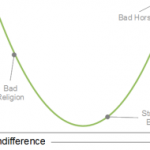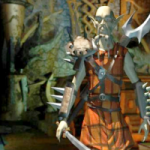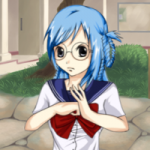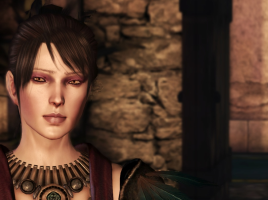
Capricious Nature
August 12, 2012 - Difficult Personalities / Features
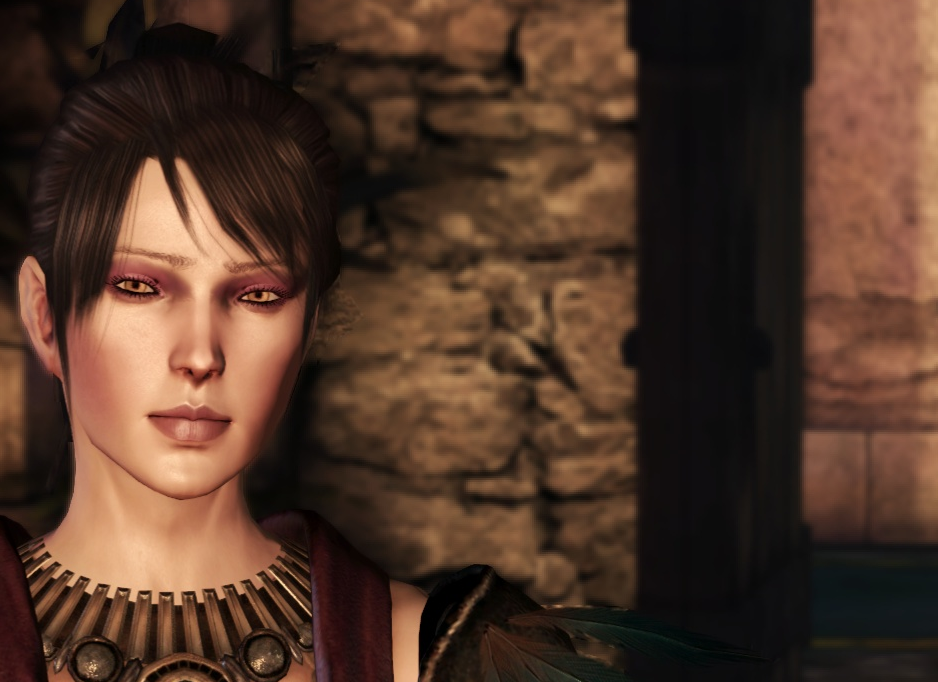
The Futile Rebellions of Fereldan
Do you accept the role given to you, or do you try to escape it? Even when you try, can you escape the way your role shaped you? The question is salient for a videogame character stumbling into a typical save-the-world story. It’s also a question that lies at the core of the Dragon Age games, particularly the first entry. Unwanted roles and the institutions that enforce them appear throughout Dragon Age: Origins. Many characters you meet happily embrace their roles, but even those who fight them end up living out the same story in a different context.
Most of your companions embody this theme in a way that illuminates an important social structure in Thedas. Leliana escapes the life of a spy in the Orlesian court and swears the Chantry has taught her to turn her back on violence and deception. In the end, though, she only applies those same skills for different masters (including the Chantry). Much as he professes to hate his Templar training, Alistair continually defaults to his Chantry morals. Oghren claims to enjoy his freedom from the caste system that rejected him, but his self-destructive tendencies betray how much he internalized the shame of his rejection. A similar dynamic drives Sten and Zevran, both of whom you meet in the middle of an elaborate suicide attempt.
Wynne, on the other hand, seems to wholly embrace her role as a Circle mage. However, the Circle doesn’t teach mages to be happy members of society; it teaches them that they’re monsters fit only for cages. Wynne and the other “good” mages rebel in their own way by rejecting that role. Yet as you can eventually discover, Wynne secretly harbors a spirit in an abomination relationship. Like most of the mages you meet in the Dragon Age games, when push came to shove Wynne became the monster society expects of her. Throughout these stories, a clear message emerges: you are what you were trained to be. All that changes is who’s giving the orders. Without your role, you become nothing.
Of all your companions, Morrigan has the most complicated relationship to this theme. She also fights against her role, and in the end, may well end up filling it more than she intends. However, greater ambiguity surrounds exactly what her role is and how she plans to fight it. While you meet each of the other companions in a state of self-destruction, despair, or denial, Morrigan has her shit together from day one. She doesn’t join you because she needs a new hierarchy to make her feel worthwhile; she joins because her mother told her to. As a consequence, she maintains a purely transactional view of your relationship.
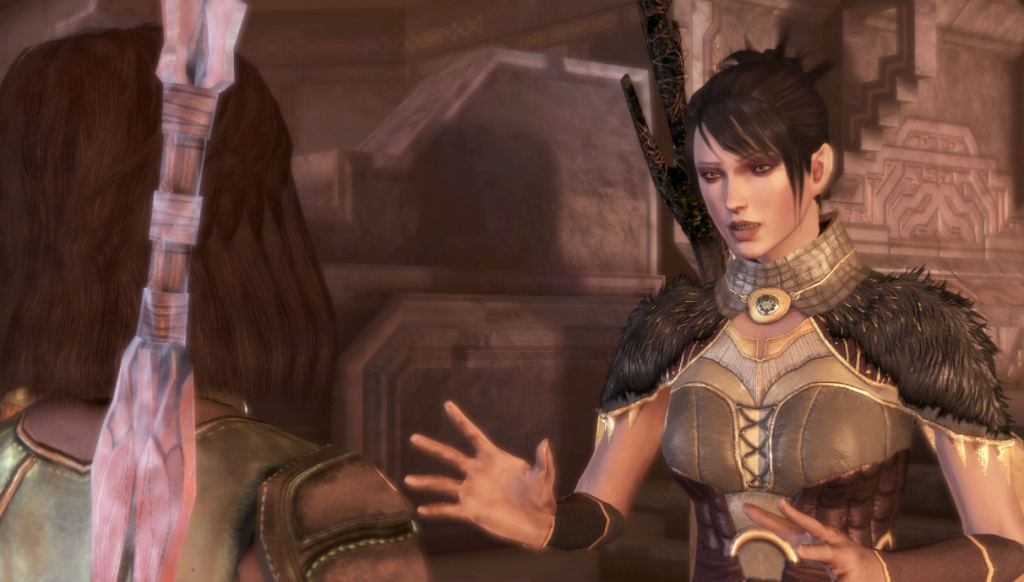
Morrigan’s Role
Unlike the other companions, Morrigan doesn’t represent a known part of the world. Everything about her marks her as outside society and known history. Her appearance and skills associate her with untamed nature, while her archaic speech patterns distinguish her from contemporary norms. She constantly questions what you are told by authority figures. Even so, her role imprisons her as surely as anyone’s. Morrigan’s mother holds as much power as any social structure in Thedas. Flemeth has grand plans, and Morrigan plays some major part in them. The obvious one is the Grimmian immortality scheme Morrigan discovers. Supposedly, when Morrigan comes into her power, Flemeth will kill and possess her. At the end of “Witch Hunt,” Morrigan suggests that Flemeth may have larger plans still.
Either way, Morrigan’s struggles to destroy or thwart her mother shape much of her storyline and the endgame of Origins. Morrigan fights more violently than any character against the forces of her upbringing. In doing so, however, she takes on enough of her mother’s ruthless, grandly scheming qualities that a literal possession might not change much. Moreover, Flemeth hints in both Origins and Dragon Age 2 that Morrigan’s rebellion is an expected or even intended part of her plan. Morrigan may not seek out a new master like your other companions, but she has no more luck at escaping the teachings of her old one.
As well as embodying the theme herself, Morrigan does more work than any other character to push your Warden to embody the game’s themes. Origins provides a typical “only you can save the world” scenario. As part of the scenario, people everywhere beg you to help them out with their random problems. A world like this encourages playing a certain kind of character. Even if you play the renegade hero, you still end up playing the hero. You want to do quests and get rewarded for them. That’s why you’re playing the game! The basic incentives reward passive acceptance the Hero of Fereldan role. How then to incite the player to either rebel against that role or consciously embrace it?
One solution is a character who provides a compelling, yet irritating, argument for rebellion. Morrigan may act as your token “evil” character, but she doesn’t only argue for the mustache-twirling route in quests. Often, she argues for not doing a quest at all. She disapproves of many altruistic sidequests, but it doesn’t end there. She wants you to abandon Redcliffe to the walking dead, along with all its sidequests and experience points. She wants you to reject Wynne’s offer to join forces at the Circle Tower, which would end with the death of a powerful healer. These are not trivial matters. Towns and healers are valuable resources in a roleplaying game. To make Morrigan happy, particularly early in the game, requires sacrifice1.
Often, Bioware uses character conflict to force the player to define themselves more clearly. Jack and Miranda in Mass Effect 2 force you to declare your ethical approach to Cerberus, for example. There’s some of that in Origins, too, especially with Morrigan and Alistair. But Morrigan also does something a bit different. She sets up a conflict not just between her and other characters, but between her and your instincts as a player. She almost acts as a hostile guide. A desire to impress Morrigan may lead you to forsake quests, destroy towns, and abandon potential party members. Yet the game gives you good reason to want to impress her. She’s a powerful fighter, and gets useful magic bonuses if she likes you and may leave if she doesn’t like you. Plus, she’s awful pretty. Playing the hero becomes a real choice, and one that has consequences. A character who tells you, “Maybe being a hero isn’t all it’s cracked up to be!” might make a very engaged player stop and think for a minute. One who repeatedly punishes you for playing the hero can infect the entire game. She pushes you not just to take a stand on some issue, but to consciously decide what your own role is.
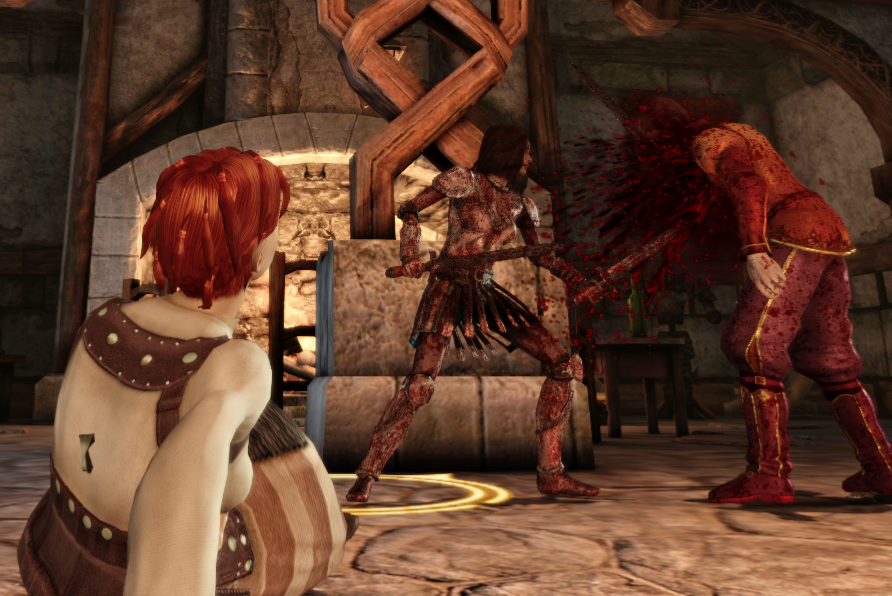
Morrigan and Me
The kids playing pretend in the Denerim Alienage imagine themselves as human heroes. Troubled, Rulan Tabris bullshits a story about a great elven heroine: a clever, charming Robin Hood who stole from the rich and protected the poor. The kids are delighted. Rulan still feels like a fraud. “I guess what they say about you is wrong!” says the guy she saves from the Tevinter slavers. Back on the road, she’s still wondering what the hell they say about her.
Rulan was my first Warden, a City Elf rogue with a weakness for men and sympathy. Life in the Alienage taught her both a sense of the futility of fighting corrupt systems and a drive to survive by any means available. I formed the character from the materials given by the old-school melodrama of the City Elf origin. She was born as she lived: in furious passion, covered in blood, with some chivalrous idiot getting himself killed over her. Rulan wanted to save everyone, but her survival instincts continually betrayed her. Much as she wanted to be the Robin Hood she told the kids about, her story ended up being a series of wary compromises with distasteful allies. From Bhelen to Anora to The Architect, she made deals with existing power structures based on pragmatism and mutual distrust. She felt those compromises were the only way to end the war. The lessons of the Alienage never really left her.
By the time I reached “Witch Hunt,” Rulan was consumed with a desire to fight it out with Morrigan in a possibly murderous fashion. My boyfriend, a Morrigan fan, asked me why the hell I wanted to do that. This was a good question. Rulan and Morrigan had been good friends at first, united by a common cynicism and outsider status. Friction had grown over their contrasting opinions on the rescuing of kittens, of course. There was also the unfortunate incident with Morrigan’s desire to sacrifice Rulan’s father to a blood mage. (Though in Morrigan’s defense, she may have just been trying to take their friendship to the next level2.) Still, Rulan understood and even sympathized with Morrigan’s selfish attitude. Self-preservation is one way to get by in the world.
Their divide widened at the Circle Tower, where Morrigan’s self-preservation started to sound more like elimination of anyone who threatened her superiority. But the real split came in the aftermath, when Morrigan found her mother’s grimoire and started calling for the old woman’s head. Rulan felt this was a bridge too far. She owed Flemeth her life and no longer fully trusted Morrigan. So she made a deal with Flemeth to let her escape and lied to keep Morrigan around. When given the chance to eliminate a problematic power, she instead made a deal advantageous to herself. This became the template of compromise Rulan followed to the end. Morrigan’s unyielding nature pushed her to show her true colors, and she didn’t like what she saw. That’s why she refused Morrigan’s bargain, and why she was so angry when she found Morrigan in the boneyard. For all their similarities, Morrigan wanted a greater revolution than Rulan could support.
In playthroughs with different characters, Morrigan played different roles. But each time she helped define the Warden’s approach to their heroic destiny. Marta, the righteous defender of the moral status quo, saw her as a symbol of what needed to be destroyed for good to prevail. Lennox the disaffected mage found in her the one thing in the world worth caring about. Byron Aeducan, the crafty power player, saw her as an amiable yet unreliable partner on the road to world domination. Morrigan stands in fierce opposition to the world and its expectations. Therefore, the Warden’s relationship to her mirrors their relationship to the world.
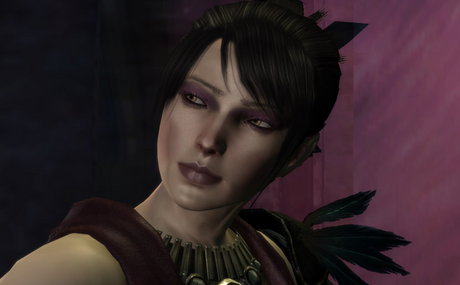
The Bargain
Morrigan shares many qualities with difficult characters from other games. She’s hard to read, particularly if you romance her, and reacts unpredictably to attempts to charm her. She’s unyielding, forcing you to make sacrifices of quests and other companions’ approval. However, her difficulty has a different purpose than the difficulty of dating sims. Morrigan is not a prize. She has her own agenda, and it only intersects with yours on occasion and in uncomfortable ways. Notably, the game implies that she’ll find a way to carry out that agenda no matter what you do. She is not an opportunity to exert your will on the game environment. If anything, she represents just how little control you have.
Morrigan grows less difficult over time. You understand her better, and she doesn’t get in your way as much as she used to. By the time you get to the final bargain, she’s not really difficult at all. In fact, she offers you the easy way out. Still, earlier experiences may have trained you to think of listening to Morrigan as involving a sacrifice. How you take this scene will depend mightily on your relationship with both Morrigan and heroism up to that point. If you embraced your role as a Warden, she seems to be offering one last grim tradeoff: sacrifice your integrity for a get-out-of-jail free card. If you embraced her point of view instead, you already made the tradeoff long ago. To Rulan, the plan sounded a little sad and desperate, and she rejected it outright. The tradeoff only became clear later: no Morrigan in the final battle, and a dead friend.
Thus her offer at the end goes back to that original question she has pushed on you since the start. Do you accept your role and play the hero? Make the sacrifice, be a good Grey Warden, and lose Morrigan? Or do you rebel? Declare your freedom, refuse the sacrifice, and do what Morrigan wants? The action plays out much the same in either case. All you can really do is decide who your character believes in. Like your companions, you have the freedom to rebel against your role. You just might find yourself doing the same work for a different master.
* * *
1 This is somewhat undermined by the unbalanced gift system, although a beginning player might not realize that. In any case I don’t think that was intentional, since the “small gifts” were removed for the sequel.
2 A short list of Bioware characters with whom you can improve relations by killing off a relative or ex-lover: Mission, Zaalbar, Leliana, Zevran, Anders, Aveline, Fenris, Varric, Liara, Samara, Morinth, Jacob, Miranda, and, of course, Morrigan. Oghren remains unusual in that he gets pretty pissed off if you murder his ex-wife.
